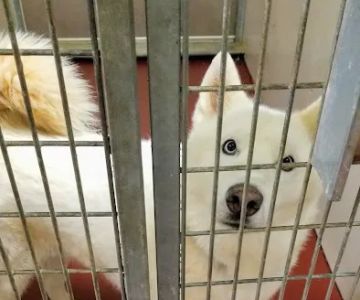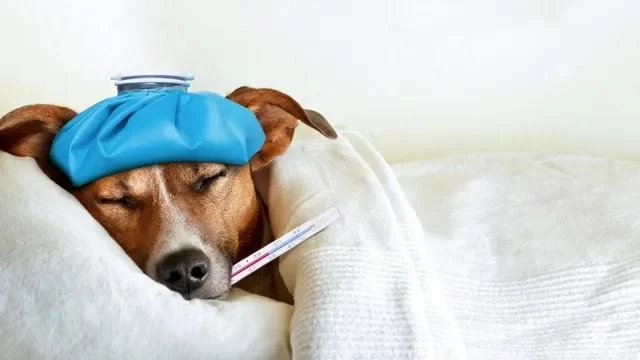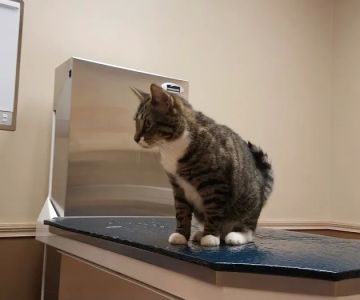Treating Pet Gastrointestinal Problems: Effective Solutions for Your Pet's Digestive Health
- Understanding Pet Gastrointestinal Issues
- Common Symptoms of Digestive Problems in Pets
- Treatment Options for Pet Digestive Problems
- Preventing Digestive Issues in Pets
1. Understanding Pet Gastrointestinal Issues
Pet gastrointestinal problems can range from mild discomfort to serious health issues that require medical attention. These issues affect the digestive system, including the stomach, intestines, and related organs. Just like humans, pets can experience a variety of digestive problems due to factors such as diet, stress, infections, or even underlying medical conditions.
As pet owners, it's crucial to recognize the signs and symptoms of gastrointestinal issues early on. By understanding these issues, you can provide timely care to ensure your pet remains comfortable and healthy. Common digestive issues in pets include vomiting, diarrhea, constipation, and changes in appetite.

845 W Ridge Rd, Gainesville, GA 30501, USA
See Details2. Common Symptoms of Digestive Problems in Pets
Recognizing the symptoms of digestive problems in pets is the first step toward proper treatment. Some of the most common signs of gastrointestinal distress in pets include:
- Vomiting: Frequent or occasional vomiting can indicate a problem with your pet's digestive system, such as irritation, infection, or obstruction.
- Diarrhea: Loose or frequent stools are often a sign of infection, dietary issues, or inflammation in the gastrointestinal tract.
- Constipation: Difficulty passing stools or infrequent bowel movements can be a sign of a blockage or other digestive concerns.
- Loss of Appetite: A sudden decrease in appetite or refusal to eat can signal digestive distress or other underlying issues.
- Excessive Gas or Bloating: Pets that suffer from bloating or excessive gas may have issues with their stomach or intestines.
- Lethargy: Pets that are less active or seem sluggish may be experiencing discomfort due to gastrointestinal issues.
If you notice any of these symptoms in your pet, it is important to consult a veterinarian to diagnose and treat the underlying cause of the problem.
3. Treatment Options for Pet Digestive Problems
Treating gastrointestinal problems in pets depends on the underlying cause of the issue. Here are some common treatment options:
- Dietary Changes: A change in diet can help address gastrointestinal issues in pets. Specialized diets, such as those designed for sensitive stomachs, may be recommended by your veterinarian to ease symptoms and improve digestion.
- Probiotics: Probiotics can help restore the balance of healthy bacteria in the digestive tract, which is often disrupted during gastrointestinal distress. Your vet may recommend specific probiotic supplements for your pet.
- Medication: Depending on the diagnosis, medications such as anti-nausea drugs, antibiotics, or anti-inflammatory drugs may be prescribed to treat infections or inflammation in the digestive system.
- Hydration: Ensuring your pet stays hydrated is critical, especially if they are experiencing vomiting or diarrhea. Offering electrolyte solutions or giving fluids under veterinary supervision may be necessary to restore hydration.
- Fasting: For mild cases, your veterinarian may recommend a short period of fasting to allow your pet’s digestive system to rest and recover before reintroducing food.
It's essential to work closely with your veterinarian to determine the best course of action based on your pet’s specific needs and symptoms.
4. Preventing Digestive Issues in Pets
While gastrointestinal issues in pets can sometimes be unavoidable, there are several steps you can take to reduce the risk of digestive problems:
- Feed a Balanced Diet: Ensure your pet receives a nutritious, well-balanced diet that’s appropriate for their age, breed, and size. Avoid feeding them table scraps or sudden changes in food that may upset their stomach.
- Regular Vet Check-Ups: Routine veterinary visits help detect any underlying health issues early, which can prevent more serious digestive problems in the future.
- Manage Stress: Stress can contribute to gastrointestinal problems in pets. Providing a stable, calm environment and engaging in stress-reducing activities can help maintain your pet's digestive health.
- Avoid Toxic Foods: Some foods that are safe for humans can be harmful or toxic to pets. Always be cautious about what you feed your pet, and keep harmful foods like chocolate, onions, and grapes out of their reach.
- Exercise: Regular exercise is important for maintaining a healthy digestive system. Ensure your pet gets enough physical activity to support their overall health.
By adopting these preventive measures, you can significantly reduce the chances of your pet experiencing gastrointestinal problems.
Treating pet gastrointestinal problems requires prompt attention and care. If your pet is showing signs of digestive distress, it’s important to seek professional veterinary advice as soon as possible. For expert help in diagnosing and treating your pet’s gastrointestinal issues, visit Hidden Brook Veterinary today!











